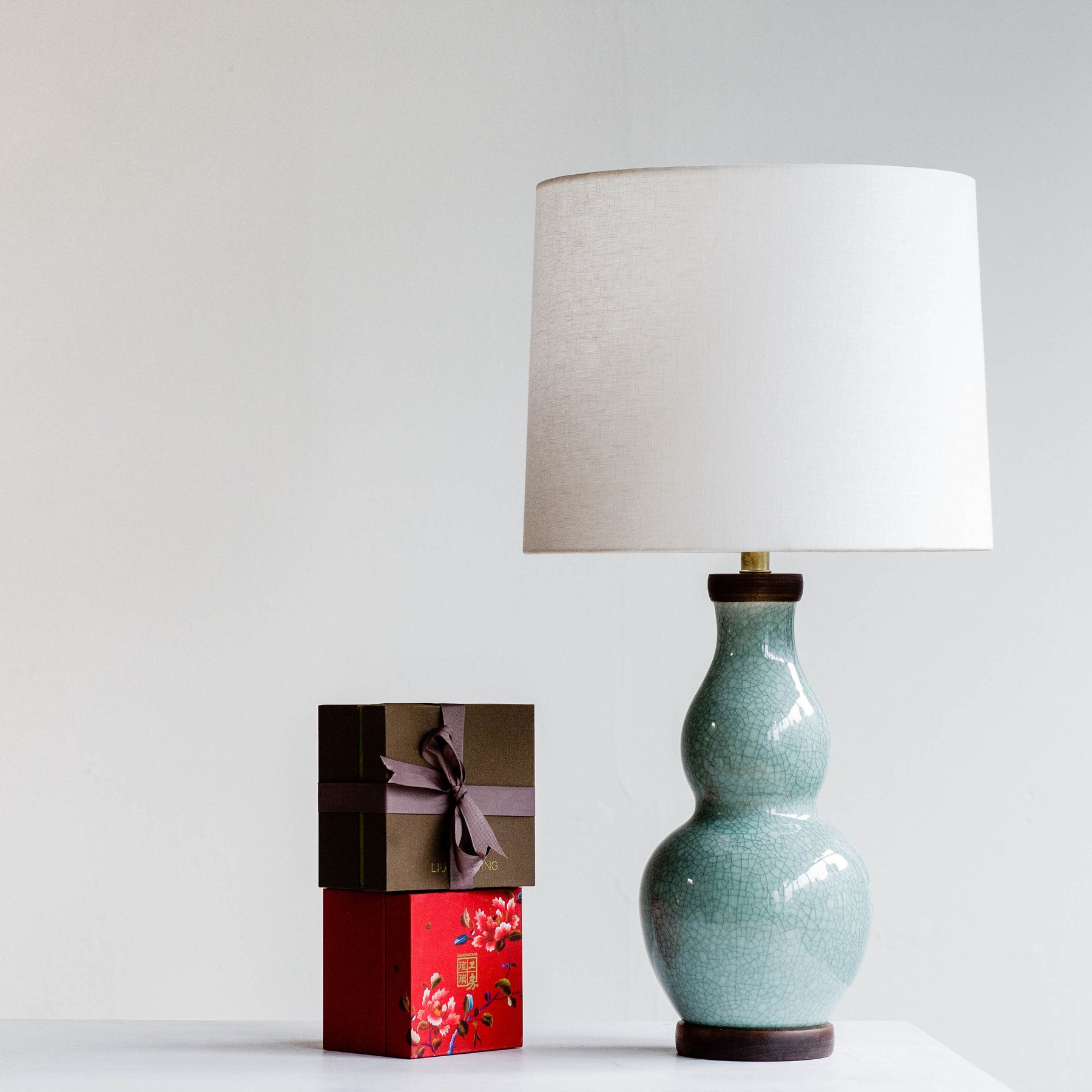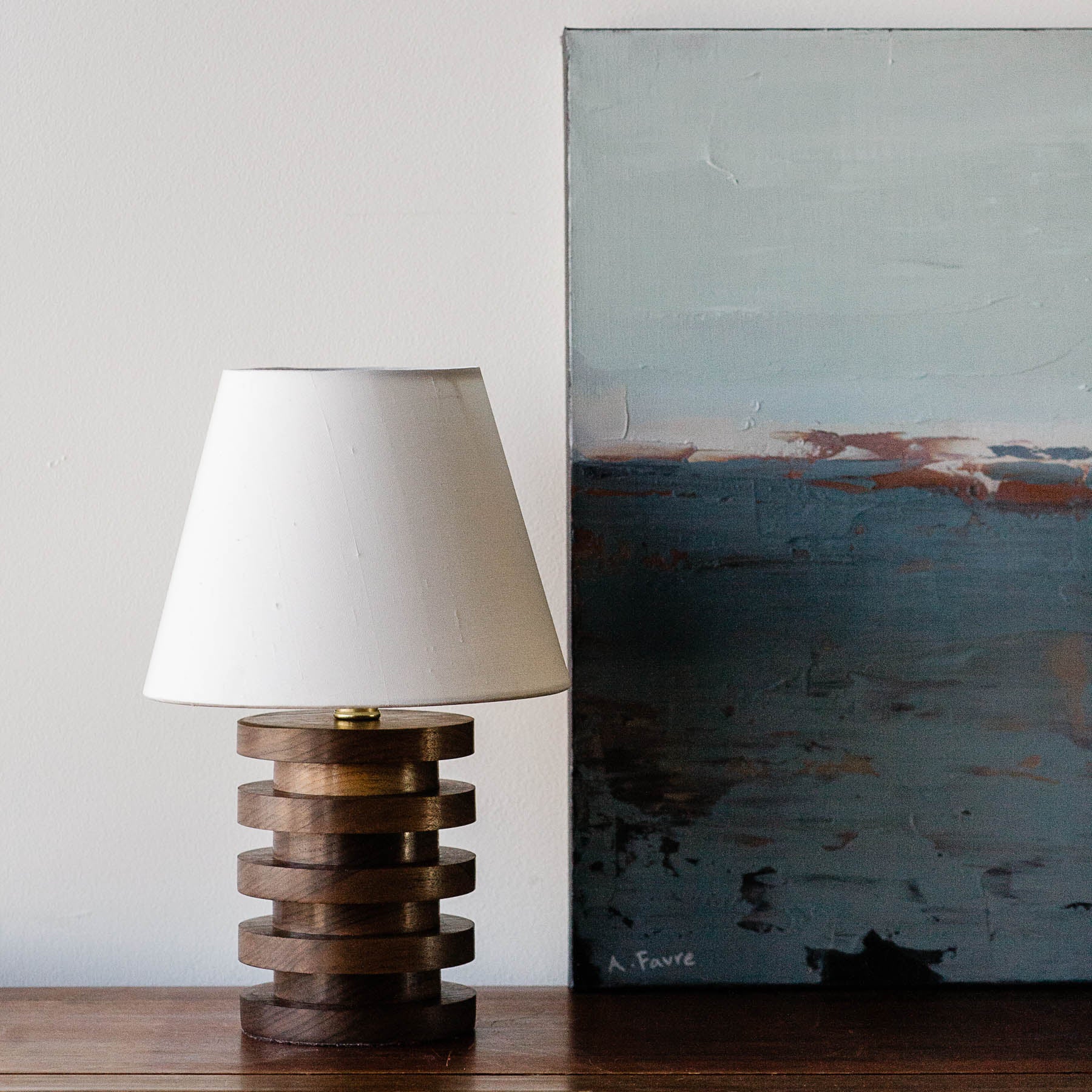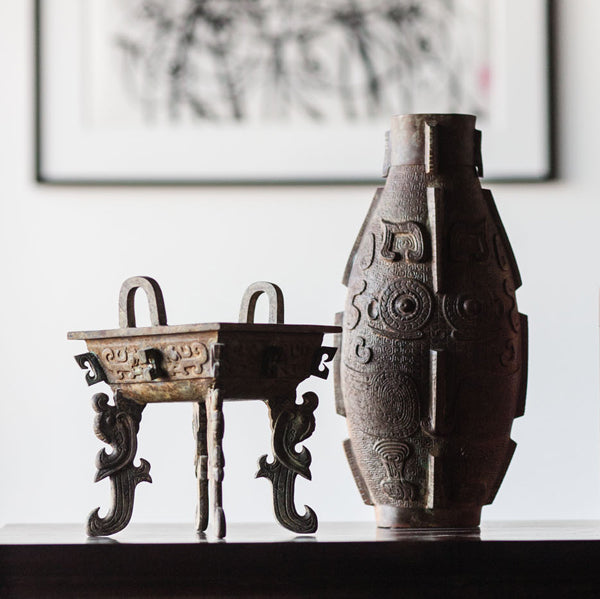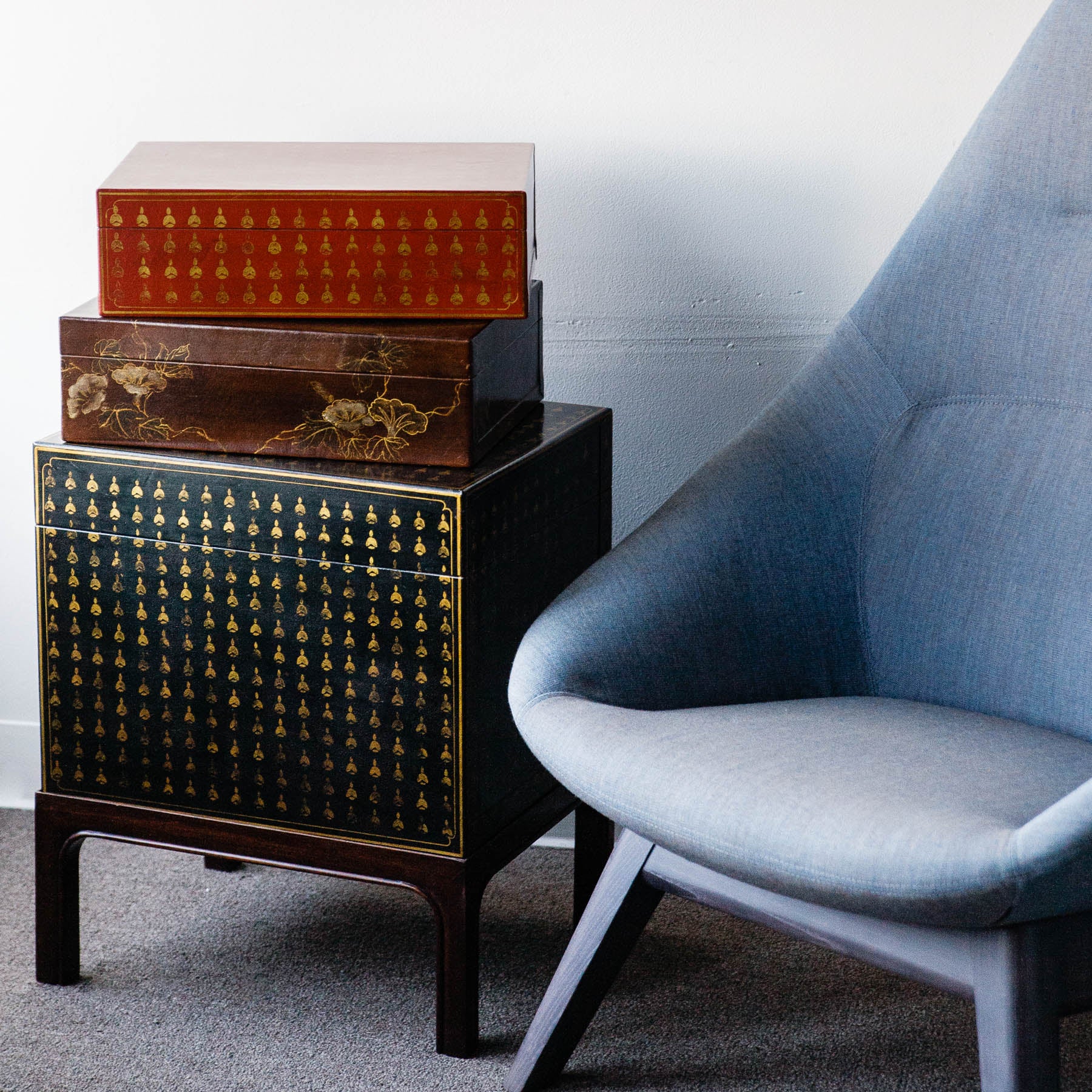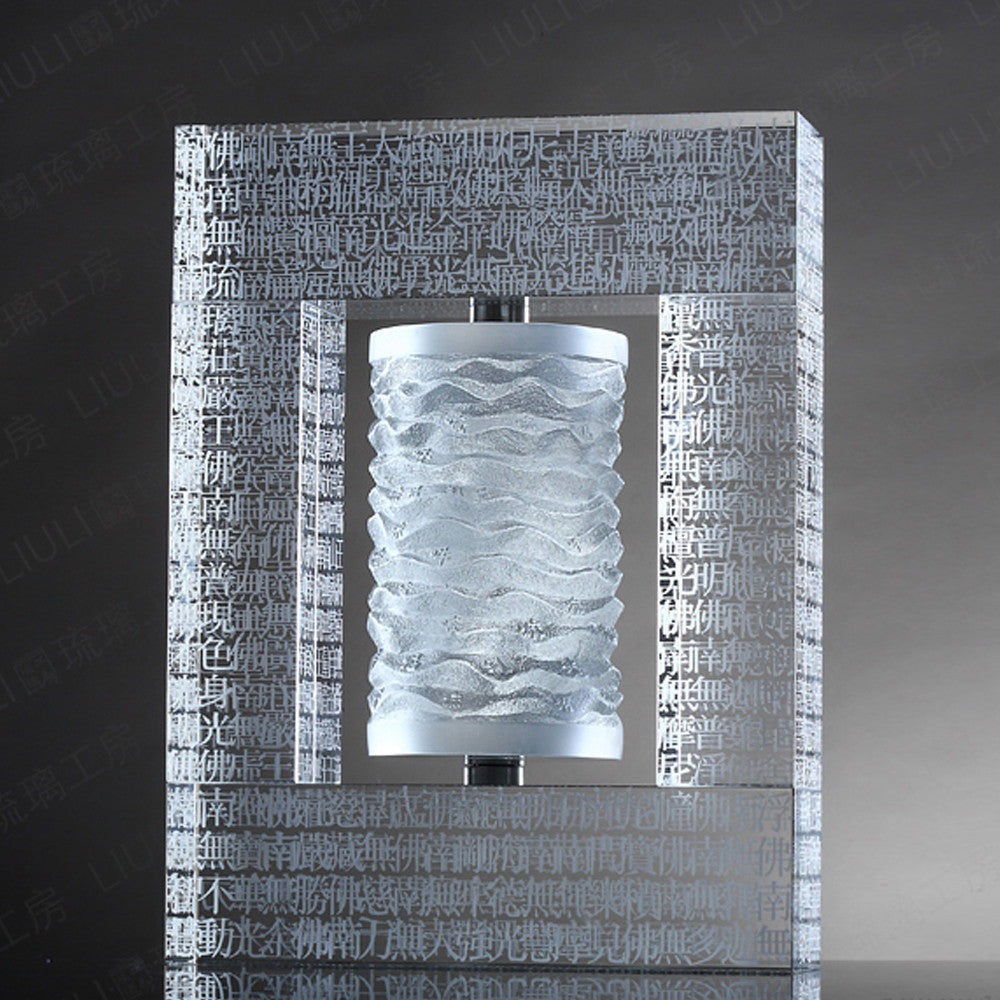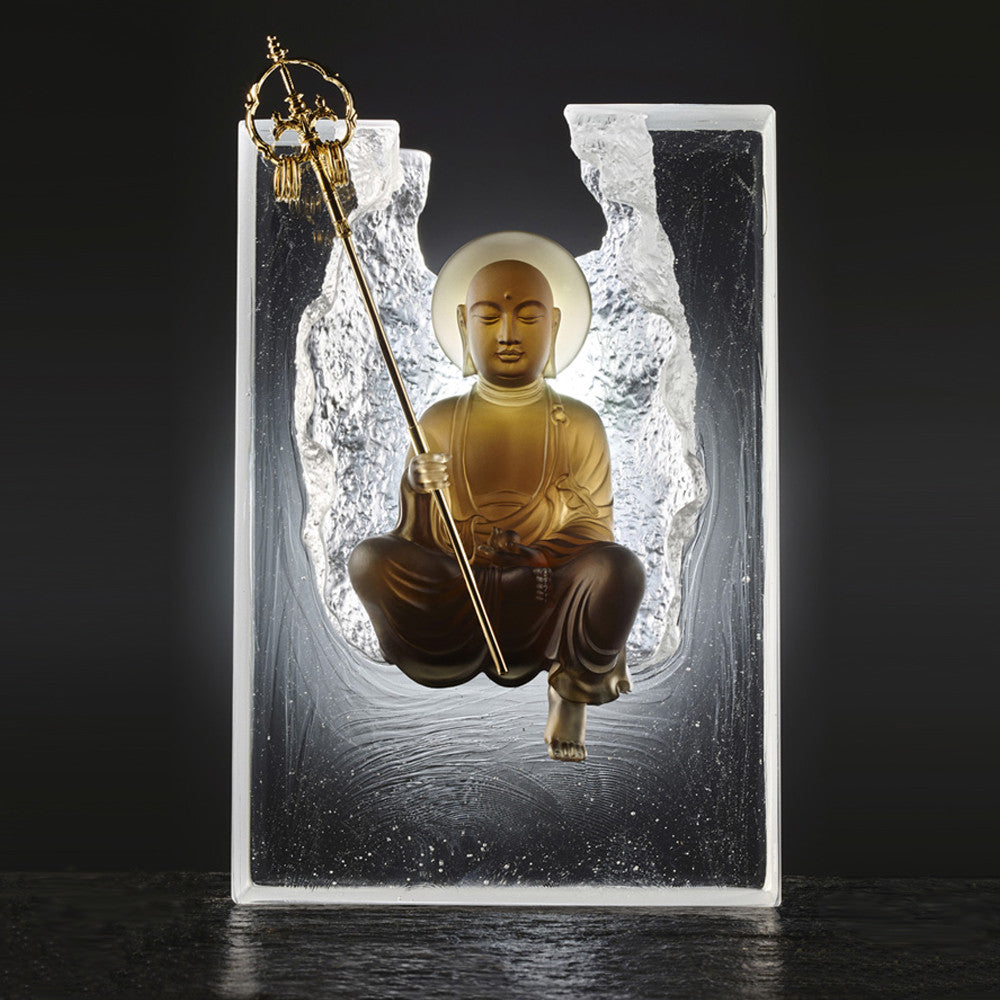Crystal Buddha, Ksitigarbha Bodhisattva, "Tranquil Concealment"
Couldn't load pickup availability
Material: Crystal Glass and 24k Gold Plated
Technique: Pate de Verre
Size: 7.09L x 3.54D x 10.24H inches
Limited Edition: 450 pieces (Worldwide)
Note: As the art pieces are individually hand-made, the color and dimensions will vary slightly.
Design Description:
Ksitigarbha is one of the four main bodhisattvas in Chinese Buddhism, along with Guanyin, Manjusri, and Samantabhadra, and represents filial piety and the power of a vow. The Sutra of the Past Vows of Ksitigarbha Bodhisattva tells the story of how, over the course of successive lifetimes in the distant past, Ksitigarbha rescued his mother from hell, eventually making his famous vow, “Not until the hells are emptied will I become a buddha; not until all beings are saved will I attain enlightenment.” Ksitigarbha (Earth-store) embodies the strength of the earth and the prosperity brought about by the discovery of hidden treasure. Thus Ksitigarbha is described as “Peaceful and unstirred, like the great earth; entered into profound concentration, like a hidden treasure.” The roughly chiseled surface of this piece represents the turbulence of the world, aflame with the fires of the defilements, into which the bodhisattva calmly enters completely unscathed. The bubbles in the transparent glass represent the cooling effect of Ksitigarbha’s tranquil mind and lofty vow. In his hand is a pewter staff topped with metal rings, one of the 18 traditional requisites of a Buddhist monk in China. In contrast to the other bodhisattvas, Ksitigarbha is portrayed as a shaven-headed monk, due to his association with a prince from the Kingdom of Silla (57 BCE–935 CE, now South Korea) who became a monk, went to China, and practiced asceticism for 75 years before finally passing away at the age of 99 on Jiuhua Shan in Anhui province, the sacred mountain of Ksitigarbha and one of the four principle Buddhist sacred mountains in China. It’s widely believed that this monk was a manifestation of Ksitigarbha.

